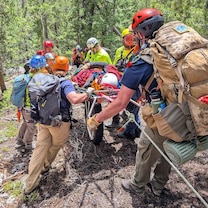McCain, Military Oppose Expanding GI Bill
Senator concerned about a bill that would expand military education benefits.
April 14, 2008 — -- Sen. John McCain, R-Ariz., the presumptive Republican presidential nominee, seemed to give a thumbs down to bipartisan legislation that would greatly expand educational benefits for members of the military returning from Iraq and Afghanistan under the GI Bill.
McCain indicated he would offer some sort of alternative to the legislation to address concerns that expanding the GI Bill could lead more members of the military to get out of the service.
Both Democratic presidential candidates — Sens. Barack Obama, D-Ill., and Hillary Clinton, D-N.Y., — have signed on as co-sponsors, and the bill has gained bipartisan support from 54 senators on Capitol Hill in addition to Webb. A vote on the proposal is expected before the summer.
But the bill, which would dramatically increase educational compensation for American troops, has run into some unexpected resistance, both at the Pentagon and now from McCain, who has remained silent on the issue, saying he had not studied the bill close enough.
Pressure had mounted on McCain to support the bill — a veterans group, which backs the legislation, delivered a petition to McCain's Senate office, signed by 30,000 veterans.
Officials in charge of Pentagon personnel worry that a more generous and expansive GI Bill would create an incentive for troops to get out of the military and go to college.
And while that might be great for the individual troop, it could be bad for the military, which is already under stress after more than five years fighting two wars.
On his campaign plane this afternoon, McCain said he and allies in the Senate are working on an alternative to the bill, but would only support something that included incentives to stay in the military.
"We are working on proposals of our own — I'm a consistent supporter of educational benefits for the men and women of the military," McCain said. "I want to make sure that we have incentives for people to remain in the military as well as for people to join the military. ... I've talked a lot about veterans' health care, so we'll continue to talk about those issues and how to care for vets. I know I can do that, having been one."




